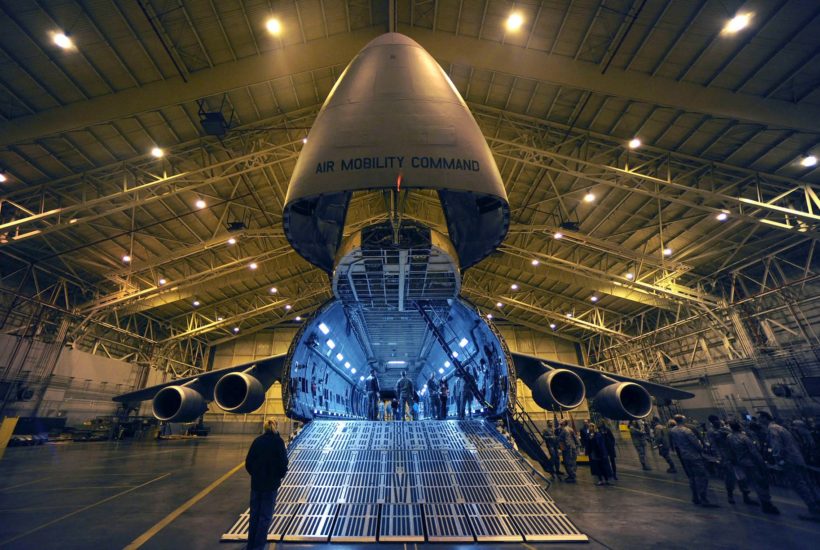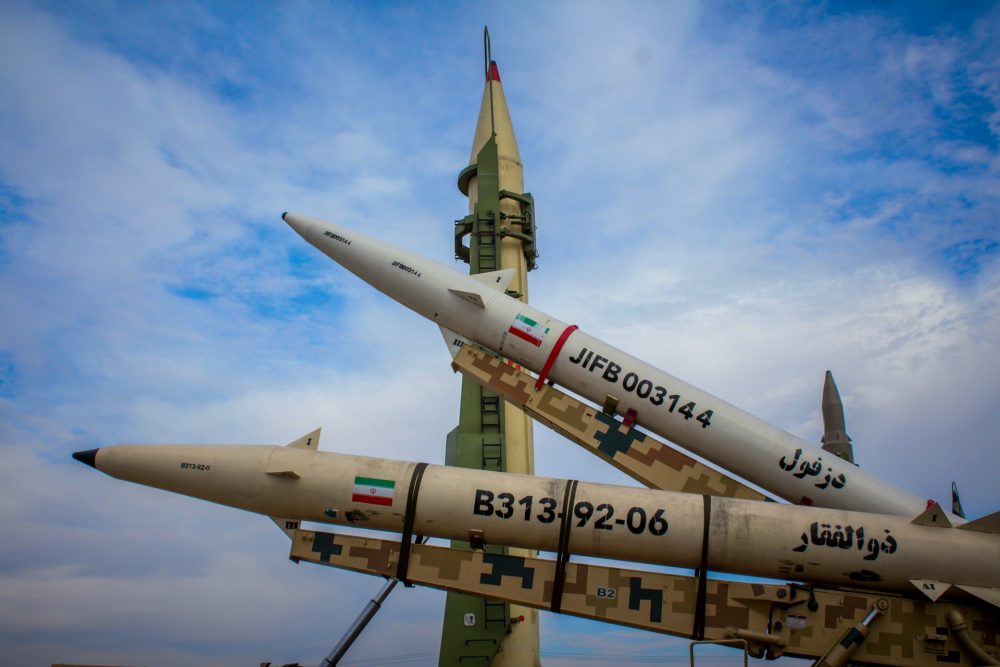Business
Billions authorized for military base projects in many states
The New National Defense Authorization Act President Trump signed on December 21 includes a defence budget of $738 billion. In North Carolina, the government will spend $2.2 billion for military construction, whereas in Texas $16.5 was directed to Fort Hood for construction of a new central energy plant. Funds were also allocated for technology-related projects.

Looking for a massive funding document that describes hundreds of upcoming opportunities? Look no further than the new National Defense Authorization Act (NDAA) document that President Trump signed on December 21.
For 59 years there has been a NDAA appropriations document, but never has there been one this large. The 2020 budget for defense is $738 billion, an increase of $22 billion over the 2019 budget. This bill authorizes FY2020 appropriations and sets forth policies for Department of Defense (DoD) programs and activities. The document outlines planned short term spending.
The following examples of upcoming projects provide insight into what will be procured.
North Carolina
The government in 2020 plans to spend $2.2 billion for military construction in North Carolina. Another $1.1 billion has been allocated for Hurricane Florence recovery work at Air Station Cherry Point, Air Station New River, and Camp Lejeune. Of those three bases, Cherry Point is slated to get $73.97 million for an aircraft maintenance hangar, $61.34 million for an air traffic control tower and airfield operations, $53.23 million for an F-35 training and simulator facility, and $51.86 million for flightline utility modernization.
Fort Bragg, the largest military installation in the world in terms of population, also will benefit from funding. The Army base will receive $96.6 million for construction projects that includes $43 million for a special operations facility, $29 million for a special operations forces building, $12.5 million for a dining facility, and $12.1 million for a special operations assessment and training complex.
California
Funding for projects at Camp Pendleton includes a new mess hall and a warehouse with costs estimated at $71.7 million. An information center project is budgeted for $38.87 million, and the replacement of an ambulatory care center and dental clinic has costs projected at $17.7 million. Base officials plan to break ground on some projects in 2020. Another $2.65 million has been allocated to dredge Oceanside Harbor.
New York
Fort Drum has been granted funding to upgrade several transportation projects. One project estimated at $21 million will renovate the railhead. Construction of1.2 miles of new railroad loading tracks will allow multiple trains to be serviced simultaneously. A side loading area also will be added as well as new ramps, lighting, and an Alert Holding Area. Another project funded for Fort Drum is a $23 million hangar to house tactical unmanned aerial vehicles.
Florida
Tyndall Air Force Base will receive $3.4 billion that can be administered over the next five years to assist with hundreds of buildings that were destroyed by Hurricane Michael. The funds include an emergency supplemental federal appropriation to help with renovations and rebuilding at the base. Funding also will assist with growth for Tyndall. Currently housing the F-22 Raptor fighter jet pilot and maintenance training facility, the Air Force base will become home for three F-35 stealth fighter jet squadrons.
Nebraska
Another Air Force base recovering from a natural disaster is Offutt Air Force Base in Nebraska. In March 2019, major flooding damaged 137 facilities, 50 of which will be demolished and rebuilt on higher ground. Offutt officials want to consolidate rebuilt facilities into eight campuses. Projects estimated to cost $140.5 million will include work on the nuclear command, control, and communications (NC3) operations area, a training campus, a recreation area, bulk fuel storage, cyber and intelligence personnel, security forces, backup power plant, and hangars.
Texas
Funding for bases in Texas includes energy projects with $16.5 million directed to Fort Hood for construction of a new central energy plant and $4.5 million going to Camp Swift to enhance its microgrid. Fort Hood also will receive $18.5 million for a new vehicle bridge and $32 million for soldier barracks. The Joint Base San Antonio will receive $207 million for modernized training facilities, an air traffic control tower, new barracks, a dining facility, an aquatics tank, and Air Force Personnel Center B wing. The Corpus Christi Army Depot will get $86 million for a new powertrain facility, and funds will be allocated to expand an infrastructure investment program to include Federal Aviation Administration-licensed spaceports, including Houston Spaceport.
Technology/Cybersecurity
Funding also has been allocated for technology-related projects. Cyber reviews will be mandated every four years, and quarterly reviews will be performed on cyber mission force readiness. These steps will allow the DoD to speed up its procurement processes for software updates. Pilot programs costing $275 million will be performed at four military bases this year. These projects are related to integrating high-speed 5G wireless connectivity. Hill Air Force Base in Utah will experiment with spectrum sharing, McChord Air Force Base in Washington will use 5G to enable virtual reality training, and Naval Base San Diego and the Marine Corps Logistics Base in Georgia will test 5G connectivity.
Other military installations receiving significant funding from the NDAA include:
- Malmstrom Air Force Base, Montana: $235 million;
- Marine Corps Air Station Yuma, Arizona: $189.7 million;
- Naval Base Coronado, California: $165.8 million;
- Schriever Air Force Base, Colorado: $148 million;
- Marine Corps Base Quantico, Virginia: $143.3 million;
- Naval Station Norfolk, Virginia: $139.1 million;
- Marine Corps Air Station Kaneohe Bay, Hawaii: $134 million;
- Naval Weapons Station Seal Beach, California: $123.3 million;
- Hill Air Force Base, Utah: $114.5 million; and
- Fort Gordon, Georgia: $107 million.
Contractors interested in this type of work should check for more details in the regions of interest to them.
—
(Featured image by David Mark from Pixabay)
DISCLAIMER: This article was written by a third party contributor and does not reflect the opinion of Born2Invest, its management, staff or its associates. Please review our disclaimer for more information.
This article may include forward-looking statements. These forward-looking statements generally are identified by the words “believe,” “project,” “estimate,” “become,” “plan,” “will,” and similar expressions. These forward-looking statements involve known and unknown risks as well as uncertainties, including those discussed in the following cautionary statements and elsewhere in this article and on this site. Although the Company may believe that its expectations are based on reasonable assumptions, the actual results that the Company may achieve may differ materially from any forward-looking statements, which reflect the opinions of the management of the Company only as of the date hereof. Additionally, please make sure to read these important disclosures.

-

 Business6 days ago
Business6 days ago2.5 Billion People Watch Quiz Shows Every Day. Masters of Trivia (MOT) Is Letting Them Compete
-

 Crypto2 weeks ago
Crypto2 weeks agoBitcoin Steady Near $68K as ETF Outflows and Institutional Moves Shape Crypto Markets
-

 Crypto22 hours ago
Crypto22 hours agoMiddle East Tensions Shake Crypto as Bitcoin and Ethereum Slip
-

 Business1 week ago
Business1 week agoDow Jones Stalls Near Record Highs as Inflation-Fueled Rally Awaits Next Move


















